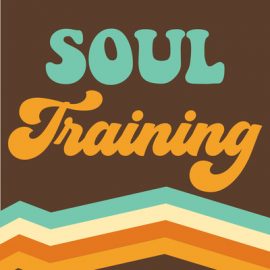One of the basic functions of life is to be able to have some level of control or direction over what we are doing in the present. Additionally, most of us enjoy being able to drive or predict our day, our week, our life, our activities, etc. I count myself in that number. Many years ago, I saw a motivational quote on a bulletin board that simply said, “If it is to be, it is up to me!” What was the implication of the quote? We have to move about in order for our goals to be realized and our dreams achieved. We can’t sit and “wish” for things to happen for us. But what happens when “our plans,” do not unfold as we desire? What happens if our past decisions have possibly impacted our future and we don’t know where the journey will end? Once our plans are foiled because of the loss of someone significant in our life or our path has been redirected due to unforeseen health challenges, or we are concerned about the future, our thoughts of losing control can be overwhelming. Will I be able to grow old with my spouse? Will I live to see my grandchildren? Will my children have a spiritually and emotionally healthy marriage? Will my health allow me to retire on my terms? Will my resources be enough to sustain me and my family’s financial needs as the cost of living increases? I’m certain you could add so many more questions about the “uncertainty” of what the next hour or tomorrow may bring! But these questions seem to dominate my thinking most days. Of course, these thoughts are more personal in nature.
What has contributed to the level of uncertainty over the last fifty years in society? What secular or worldly challenges has pushed our angst to new levels? A quick search yields these five events: “The Cold War nuclear threat (1970s–1980s)- the fear of global destruction loomed large; 9/11 and the rise of terrorism (2001)- a single day altered global security forever; The 2008 financial crisis- millions lost jobs, homes, and savings almost overnight; COVID-19 pandemic (2020)-uncertainty about health, safety, and the future consumed the world; Rapid advances in AI and job automation- current fears now center on how technology may impact employment and identity (Brookings Institution, 2023).” Here again, how many of us could add to this list with almost equally challenging trauma in our fifty year history that has caused us to have concerns about tomorrow, next week, or the next twenty years?! After a quick flyover and survey of both personal and worldly thoughts, events, and questions that cause us to pause about the fragility of life and the “uncertainty” of what’s next, we should quickly realize the only thing we can be certain of is uncertainty. But that doesn’t mean we can’t be prepared!
Out of all the questions we pose, events we look at, or the scenarios we considered, we should ask, “Am I prepared for eternity?” and “How can I handle uncertainty?” While society may tremble at the unknown, God’s people are called to live by faith, not fear. The Bible reminds us, “For God has not given us a spirit of fear, but of power and of love and of a sound mind” (2 Timothy 1:7). Uncertainty is part of life, but we can have an anchor. “Trust in the Lord with all your heart, and lean not on your own understanding; in all your ways acknowledge Him, and He shall direct your paths” (Proverbs 3:5–6). Rather than being driven by worry, we are invited to rest in God’s unchanging nature. His promises endure, regardless of the shifting tides of society.
Let us respond to uncertainty not with panic, but with prayer, not with doubt, but with trust in the One who holds the future. Dealing with uncertainty isn’t easy, but it can be dealt with!





